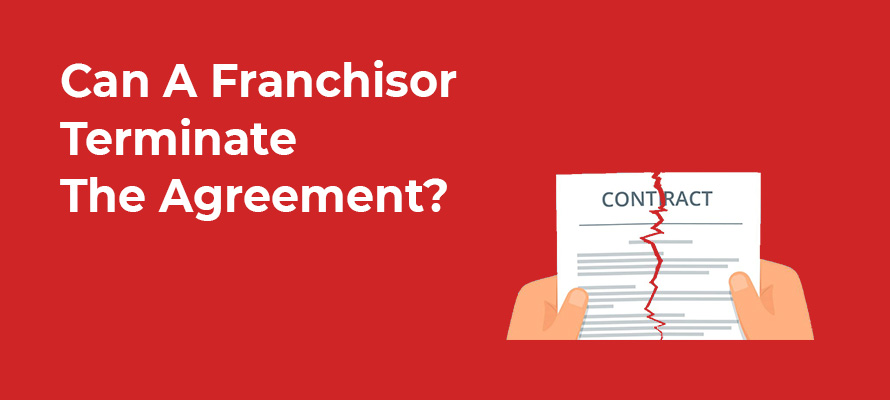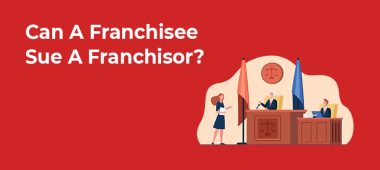The International Franchise Association has coined the term “franchise” as when a third party has been granted a license by the franchisor or a company to conduct the business using its brand name. Not only the products and services are specified being offered by the franchise but also he provides support, brand name, and operational mechanism.
Leading food outlets such as McDonald’s, KFC, Subway, and Hardee’s, etc. are the famous examples of a franchise.
Franchise Agreements
A contract signed between the franchisee and franchisor is known as a franchise agreement. This agreement must be carefully read and the termination clause, particularly, be noted. These clauses propose how, when, and who can sack the contract. The agreement also explains the laws relating to what both parties can and cannot do followed by the cessation of the deal.
A business attorney is advised to have before signing the agreement because some agreements are relatively complex. Laws of the concerned states also apply. These laws mostly do not encourage terminations except for a “good cause”.
Termination of Franchise Agreement
Many franchises terminate the contract when the agreement expires, or a franchisee may also choose not to get the lease renewed without a material breach of contract or other problems.
Among other things, an agreement is explained by a professional business attorney to make sure that the franchisor can terminate the contract if the franchisee breaches it. For terminating an agreement, the franchisor should be cautious in determining and tackling the subsequent claims by the franchisee for harms involving an unlawful cessation of the deal.
Tackling these claims is not, though, necessarily enough. Even if it is won, the cost and expenditure, on a dispute, of time and money cannot recover that price from the franchisee. Moreover, if the franchisor is unable to manage the termination well, he may lose the revenue from the territory of the franchisee. He might send an unpleasant message to his other franchisees. If the dispute goes public, it may push other potential franchisees to back foot from joining the chain of outlets. As a proverb says, not all publicity is good publicity.
Of course, some situations demand instantaneous and quick actions. The franchisor may have learned that the franchisee is being deceitful or has set up a competing business. These situations require the franchisor to come forward hard on the franchisee, meaning impartiality and brand management are thrown away. It is sometimes needed of the hour to establish to another franchisee that such behaviors are not acceptable apart from the harm they may cause to a franchisor. The action will be supported by many of the other franchisees in this situation. Especially if the conduct of negligent franchisees risks ruining the name of the franchise.
Contract Termination Because of Underperformance
Frequently than not, the franchisee agreement of a franchisee will be terminated when he is not performing his duties well or cannot always adhere to the quality standards and performance legally demanded by the franchise owner.
A franchisor can terminate the agreement by serving a notice under the requirements of the contract. However, when the contract term comes to an end and the franchisor does not allow the franchisee to renew the lease. It is not a termination.
However, there are some restraints: cessation of agreement on notice is usually allowed if the franchisee breaches the clauses of the deal. This restraint will contain not adhering to the requirements of the franchise manuals. Temporarily, the franchisee is generally eligible for the restoration of the contract until he has been found to break the terms agreed or if the franchisee is underperforming.
The Steps After Termination of Contracts
Whatever the reasons for terminating a franchisor may have and whatever the approach he desires to adopt, the initial step is usually establishing that if he is entitled to dismiss or not renew the agreement. Mostly, an agreement demands the franchise owner to provide a franchisee with a chance to correct his breach to avoid cessation. In the BFAs Code of Ethics, the requirement of fairness will also recommend that the franchisor must allow making the right moves. If the franchisee rectifies the breach or perforce, it can be adequate, and there may never be a need to terminate.
Occasionally, a specific violation is just an indication that the franchisee is not fit for the business. It is necessary, at this stage, that a franchisor seek legal assistance, both on about his (franchisor) right of terminating the contract and the proper method and schedule which should be followed for terminating the franchisee fairly and correctly.
When it is established that the franchisor is entitled to sack, and even if he doesn’t, he must then deliberate if there are some alternatives for forced cessation. It will be cessation through a contract, either along the signatories asserting that the franchisee must desist the franchise or preferably by them to work jointly to attain the targets by a franchisee of his branch or region to the new franchisee.
In such circumstances, a sale must produce impressive outcomes. The franchisor owner gets rid of a substandard signatory. The area still is engaged so that there won’t be any revenue loss for the franchise owner and there might be some training costs or other charges for the newcomer. From the perspective of a franchisee, he must be returned his outspoken investment in the franchise probably along with a little benevolent premium and would leave with his dignity intact.
In these circumstances, a franchisee would not consider bringing any claims against the franchise owner, and the franchise owner would not require announcing the cessation of the agreement while revealing information of the business with the incoming franchisee. The other partners will remain in a good spirit for the franchisor and the company.
A direct sale is not mandatory among the ousted franchisee and the newcomer. It might be established as a renunciation to the franchise owner after awarding of incomer with some of his payments going to the ousted one or being utilized for outstanding payment balance to the franchise owner.
If a mutual resolution isn’t reachable, then the forced termination would be the only option. Except for the force termination, it is quite well to negotiate, and this might be the necessity to obey the Code of Ethics. The franchise owner, in the final assessment, requires him to take over the business and overthrow the franchisee who is not willing to leave.
When a franchise owner treats well a franchisee, he will be able to understand the motives behind his removal better. It will diminish the chances of him filing a dispute, bring damage to the reputation of the brand or think to establish a rivalry in his older terrain. It is good news for the franchise owner whatever the way one looks at it.
Termination Clause in a Franchise Agreement
A termination clause usually consists of a declaration for either a signatory or to perform the following:
- Adjourned accomplishment according to the contract when there is a materialist violation of the agreement by the other signatory.
- Sack the franchisee according to the agreement when a material violation has taken place and is not solved in an equal period after the franchise owner has demanded the resolution.
When a signatory does not adhere to the clauses of the agreement, then a material breach takes place. This breach damages the worth of the contract or denies any of the signatories to take its advantage.
A franchise owner is entitled to remove the franchisee under the agreement if he:
- Has been trialed and sentenced by a court for a criminal activity
- Fails to contain his essential lease or license
- Is unsuccessful in paying the royalty
- Is unsuccessful in correcting the defaults issued to him after the notices
- Is declared bankrupt or comes under the massive debts to pay
- Is unsuccessful in following the requirements of a franchise owner related to territory and outlook
- Is unsuccessful in complying with the mandatory business maneuvers
The franchisee is entitled to end the contract with a franchise owner if he:
- Is unsuccessful in providing the support and training as articulated in the agreement
- Commits a deception or falsifies the actual profit.
- Is unsuccessful in protecting the business opportunities or the territory of the franchisee
- Is declared bankrupt or comes under the massive debts to pay
There can be many other terms and conditions in an agreement, counting that there can be adverse financial and legal consequences if the outlet is shut down or abandoned by the franchisor.
After Terminating Franchise Agreement
There can be a contractual obligation in a franchise agreement for the franchisee primarily after the completion of termination of the contract has finished, a franchisee should:
- Immediately avoid not using the brand name of the franchise, service marks, and logos
- Approve to a No-Compete clause or Covenant Not to Complete
- Clear his debts
- Return the manuals of the franchise owner
- Approve not to use the trade secrets
A franchise owner may include an article comprise of the right to repurchase branded inventory.
If a person agrees to the opportunity of franchising, whether being a franchisee or a franchise owner, the contract must have a clause related to termination containing all the necessities associated with terminating a contract legitimately.













